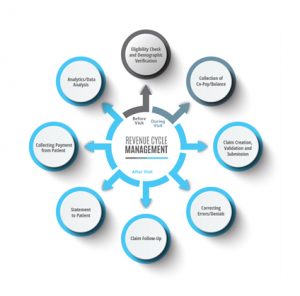Medical billing today is far more diverse than it was ten years ago. The necessity to be ultra-efficient and precise in carving a niche for any medical billing service provider remains to be a daunting task. It thus requires rigorous research into the latest medical billing rules and proceedures. One such distinctive specialty is DME (Durable Medical Equipment)billing which pertains to medical equipment that is provided to patients with specific illnesses. It is sturdy equipment that can be utilized for long durations without the hassle of finding replacements. Patients with certain medical necessities and specific diseases can attain DME by either renting or purchasing the equipment. Some health insuance plans cover the cost of DME as well. This type of medical billing demands expertise in HCPS (Healthcare Common Procedure Coding System) Level II Codes.

Choosing the best quality medical equipment for the disabled patient should be a well informed decision. DME billing may include wheelchairs, nebulizers, specialized hospital beds, ventilators, colostomy bags, walkers or crutches. 80% of these durable medical equipment expenses are covered up by Medicare alone. The issuance of such medical equipment has to be covered by the patient insurance carrier and is deemed a medical necessity. These type of equipment prescribed to the individual patient depends on the diagnosis given by the medical examiner.
Disposable medical supplies are another type of medical equipment for daily care. These include blood test strips, disposable gloves, injection needles, and masks, and adherence to HIPAA Compliance is an absolute necessity for the DME facility and medical billing practice.
Things to Consider before Opting for DME Medical Equipment
The Purpose of Medical Necessity:
The medical equipment must be prescribed by a qualified physician. There should be ample proof of the medical condition. One of the primary reasons for patients with chronic illnesses, post surgery or disabilities attaining medical equipment is because they’re bedridden or confined to home.
Usage benefits:
The use of DME aids the healing and management of diseases requiring acute micromanagement. Without the need of frequent or daily hospital visits, allowing the patient the benefits of assisted care without any inconveniences.
Reviews and References:
It is essential to keep a lookout for reviews by the families and caregivers of patients. To help save valuable time and energy while deciding on the right kind of treatment options post-surgery. Or in most scenarios to probe further about the best medical equipment that has been used most frequently. Its best to get a quick reference than to flip through stringent policies or fancy marketing before leaping into an array of information. Credible reviews and testimonies are always thebest way to filter out top of the line technology.
Warranty Period:
The maximum warranty period of DME equipment according to Medicare is at least 3 years. There are specific guidelines in place for the rent and purchase of medical equipment by the United States Health Sector. This is an important factor in mitigating any risks involved in deciding which is the right medical equipment supplier or distributor.
Cost Effectiveness:
With a wide range of diseases rampant all over the world. There is a greater need to calculate the expenses incurred on individualized health care today. With budgetary constraints it is possible to overlook quality standards. Thus choosing the right vendor offering the best value for your money should be a top priority.



















